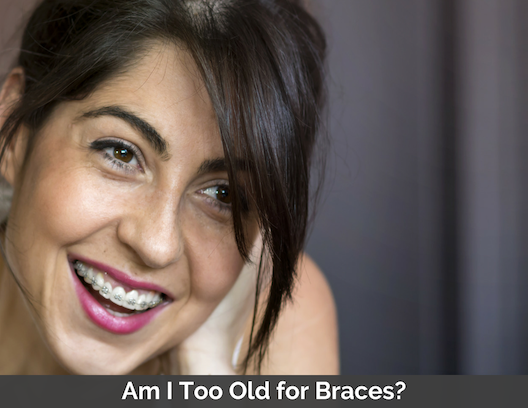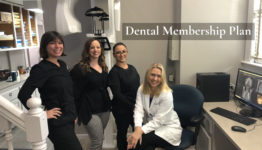
The answer to this question is good news: You are never too old to have your teeth straightened.
That wasn’t always the practice. A couple of generations ago, orthodontists advised that straightening teeth could only be successful for youths. But with modern techniques and technology, orthodontists and dentists now can create beautiful, healthy smiles at any age. Even people in their 80s have successfully completed orthodontic treatment.
In some cases, straightening teeth may be more extensive for adults. Because the bones have stopped growing, structural issues, such as cross-bite, may need surgery to correct. The condition of your gums and bones will also be evaluated, and the treatment may take longer. But most adults are good candidates for braces.
Why would an adult need braces?
A perfect smile is a valid reason at any age. Some adults weren’t able to have braces as children; others have experienced tooth movement or sustained trauma to their teeth. Whatever the reason, a bad bite is not only unattractive and may result in you refraining from smiling, but it can lead to oral health problems and tooth loss or even create medical issues.
Here are several reasons to consider adult braces.
Some may surprise you:
Your gums and teeth will be healthier. More people lose teeth from periodontitis – gum disease – than from decay. The culprit is plaque bacteria, which is more easily removed from properly aligned teeth than from the nooks and crannies of crooked teeth. Even worse, plaque bacteria can, over time, cause tooth root and bone erosion. Many adults in their later years are surprised to lose sound teeth because of unhealthy gums.
You may prevent your own heart attack. The National Institutes of Health and others report a correlation between dental plaque that is allowed to remain on the teeth and some systemic illnesses, including heart disease and diabetes. It is known that the plaque bacteria travel through the bloodstream.
Your jaw will be healthier. An uneven bite can cause your temporomandibular – jaw bone – to operate incorrectly. This could eventually lead to bone loss in your jaw and other jaw joint issues, such as temporomandibular joint disease, known as TMJ. Orthodontics can usually correct these problems.
You may sleep more soundly. Excessive overbite – “buck teeth” – can cause your airway to become blocked while you sleep. A partially blocked airway can lead to snoring. If the airway is fully blocked, you could experience sleep apnea, which continually disrupts your rest. Apnea is associated with several health issues, including heart problems.
You may experience fewer headaches or less neck pain. Chewing with teeth that are not aligned properly can stress the bones that support your jaw and mouth, possibly causing chronic headaches or neck pain that could require medical treatment. Correcting your bite could eliminate the pain.
Your speech may be easier to understand. Misaligned teeth can affect speech patterns. Straightening your teeth could improve your speaking clarity.
You may avoid tooth breakage. Misaligned teeth are more likely to chip or break, especially if they are protruding.
Your self-esteem and confidence will get a boost – with rewarding results. You may think you’re OK with crooked teeth, but if you always press your lips together in photographs or cover your mouth when you laugh, you are more self-conscious than you realize. A confident smile has been shown to increase self-esteem, which, in turn, can open up new career and social opportunities. In a 2012 Invisalign study, job applicants with straight teeth were 45% more likely to be hired over people with similar qualifications but unattractive teeth. In the same study, 38% said they would not accept a second date with someone with misaligned teeth.
You may be happier. When your teeth are beautiful, you’ll smile more. And the act of smiling has been shown to increase happiness.
More good news: You can choose the orthodontic option that’s best for you, which may not be a mouthful of metal. Dentists offer Invisalign (clear plastic trays that successively realign your teeth), hidden or lingual braces (which fit behind the teeth), and clear braces (with clear brackets, making them nearly invisible). If you do opt for metal braces, or if your condition requires them, you can show off your personality with a choice of colors.
If you’ve always wanted a beautiful smile, now is the perfect time to get it.
It’s good to know: If you need braces, it’s never too late to benefit from them.



